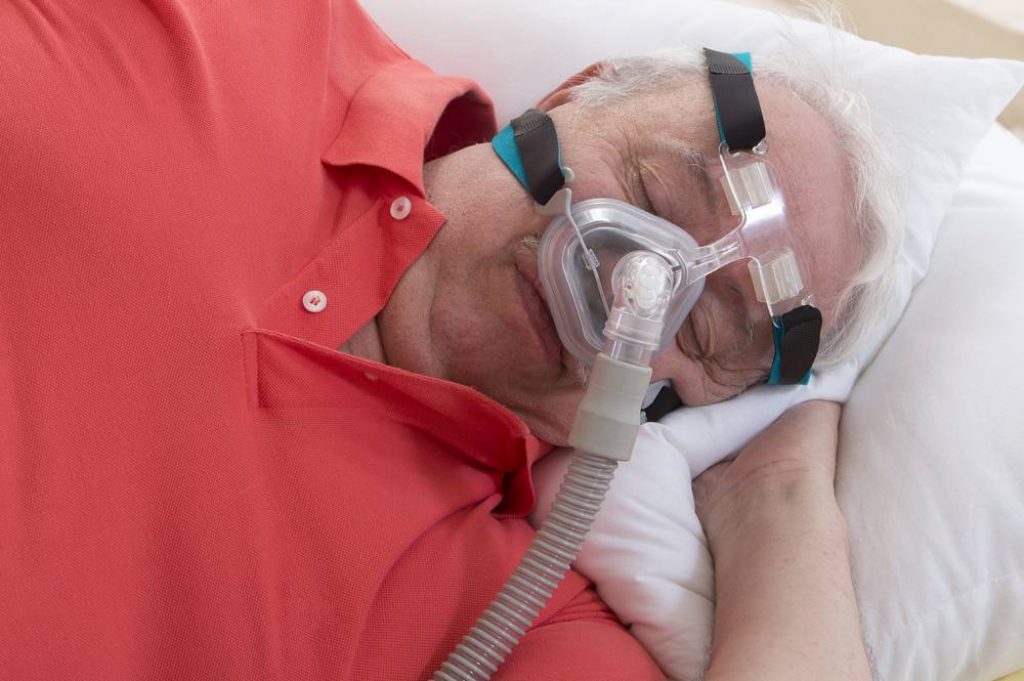
Sleep Apnea Solutions Best for You In 2023
Do you snore loudly at night? Do you always feel fatigued and have low energy, even though you slept for 8 hours or more? Then you may have Sleep Apnea, which can seriously damage your physical and mental health. Proper sleep is vital for every facet of our well being.
Related Topics (Sponsored Ads):
Sleep apnea can affect both men and women, even children. It’s a sleep disorder which can have several symptoms, but is most characterized by loud snoring through the nose, gasping for air and disrupted breathing overall during sleep. Therefore, both your body and brain fail to achieve deep and restful sleep. Over time, sleep apnea can lead to several health complications, including a drop in metal health and heart problems. In addition, if you have neighbors, roommates, a partner or a spouse, the loud snoring will inevitably impact their health and ability to sleep as well.

Types Of Sleep Apnea And Risk Factors
There are three types of sleep apnea:
1. Obstructive sleep apnea: This is the most common type. It occurs when your throat muscles relax, which makes it hard to breathe properly and
causes a lack of oxygen. So, the brain jolts you awake slightly to breathe. This disrupts the sleep cycle and prevents deep and restful sleep.
2. Central sleep apnea: This is a slightly less common type. It occurs when your brain fails to send the proper signals on time to your lungs and muscles that control breathing.
3. Complex sleep apnea syndrome: This is the worst and least common type. It’s a combination of both Obstructive and Central sleep apneas.
Sleep apnea can affect men and women of any age, including children. But older men are more likely to have it than women. Moreover, you are more at risk of developing some form of sleep apnea if you’re overweight, if you smoke, if other members of your family have it, if you have a narrow airway or have other medical conditions.
Besides for heart problems, health complications that can arise due to sleep apnea include daytime fatigue, high blood pressure, type 2 Diabetes, metabolic syndrome, complications with medications and surgery, and liver problems. Luckily, this condition can be treated, and the severity of the symptoms can be significantly reduced. Listed below are some of the top solutions for sleep apnea.
Therapeutic Treatment- Continuous Positive Airway Pressure (CPAP)
Doctors consider continuous positive airway pressure (CPAP) as the best and most effective standard treatment, specifically for people diagnosed with moderate or severe obstructive sleep apnea (OSA), because it doesn’t require surgery or any other extreme procedure. Therefore, it’s usually the first treatment that doctors prescribe.
This is how it works: you plug in the CPAP machine into an electric outlet and keep it next to your bed. It connects to your face via a tube, leading to a mask that covers either the mouth and nose or just the nostrils. Then, the CPAP machine blows out air, making your nasal and throat airways less likely to close as you breathe during sleep.
Secondary Therapeutic Treatment- Bilevel Positive Airway Pressure (BiPAP)
If you can’t tolerate the standard CPAP machine, doctors will sometimes prescribe a bilevel positive airway pressure (BiPAP or BPAP) machine. The BiPAP has a similar operating system to the CPAP machine, with only one difference: It releases air at a higher pressure when you inhale, and at a lower pressure when you exhale. This makes it easier to fall asleep.
Oral Appliance- Mandibular Advanced Splints (MAS)
This treatment option is prescribed for those who can’t tolerate any of the PAP machines. It involves wearing a custom-made dental device that fits over your top and bottom teeth. Thus, it keeps your jaw pulled forward. MAS also keeps the tongue forward, which helps your airway to stay open. The only drawback is that the effectiveness of MAS varies from person to person. MAS is best suited for cases of disruptive snoring and mild to moderate OSA.
Lifestyle Change- Weight Loss
Research and studies have proven that losing weight can lead to a significant improvement in OSA symptoms for many people. For this reason, medical professionals will often recommend a change in diet and exercise, or even bariatric surgery to their overweight or obese patients with OSA.
Surgical Treatment- Radiofrequency Tissue Reduction
If all other types of treatment options have been tried and just don’t do the trick, then your doctor will usually recommend surgery.
In this surgical treatment, surgeons use a relatively new technique called Radiofrequency surgery. They remove tissue blocking the airway with a high-frequency current. This procedure stiffens and reduces the size of your soft palate, and removes excess tissue from your nose, tonsils or tongue base.
In addition, doctors generally offer Radiofrequency surgery because it usually has fewer side effects and is less painful than other surgery types.
Conclusion
Like all sleep disorders, sleep apnea is no small health issue. So, if you’ve been experiencing any of the classic symptoms, be sure to see a medical professional about it as quickly as possible for a diagnosis, and to determine which treatment options are best for you. As for your spouse or partner, they don’t need to suffer either. There are many affordable brands of sound- blocking earplugs available at your local pharmacy that will help them sleep better as well.




